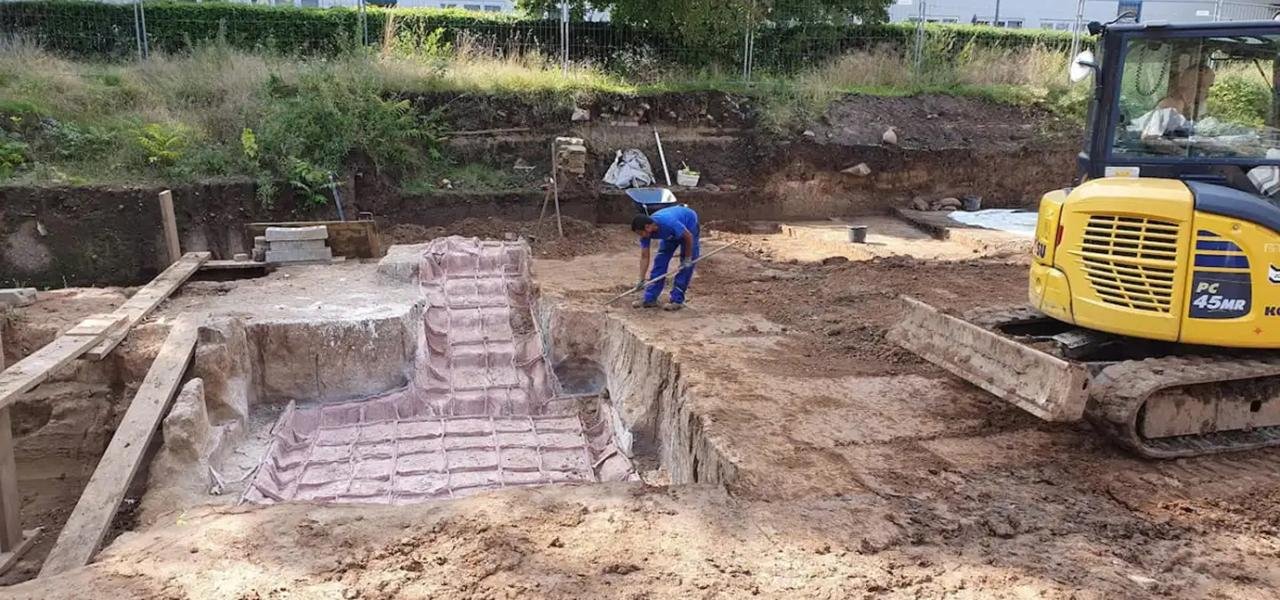Archaeologists from the Frankfurt Archaeological Museum have recently uncovered a remarkably preserved wooden cellar in Frankfurt, Germany.
 Detail of the Roman wooden cellar found in Frankfurt. Credit: Thomas Flügen / Archäologisches Museum Frankfurt
Detail of the Roman wooden cellar found in Frankfurt. Credit: Thomas Flügen / Archäologisches Museum Frankfurt
Situated in what is now Frankfurt’s modern districts of Heddernheim and Praunheim, Nida was a prominent Roman settlement, reaching its zenith around CE 110 as the capital of Civitas Taunensium.
The excavation, conducted in March 2023 by the city of Frankfurt Monument Office, revealed the cellar as part of a larger Roman residential structure, likely constructed in the late 1st century CE. The cellar, situated on the southern side of the city’s main streets, displayed signs of a destructive fire, with charred beams, charcoal, and fire debris scattered throughout. Remarkably, remnants of everyday life, including ceramic and glᴀss vessels, as well as metal objects, were found amidst the wreckage.
Ina Hartwig, head of the Department of Culture, said: “Such an extraordinary find requires special consideration. Due to the weather conditions, there was imminent danger, and we decided to rescue the cellar and thus an important artifact of ancient Frankfurt at short notice. We are very pleased that this has been successful with great technical effort and the use of newly tested methods.
 The cellar has been extracted for conservation. Credit: Thomas Flügen / Archäologisches Museum Frankfurt
The cellar has been extracted for conservation. Credit: Thomas Flügen / Archäologisches Museum Frankfurt
Wolfgang David, director of the Archaeological Museum, praised the quick decision-making process that facilitated the cellar’s recovery, ensuring minimal loss of its original state.
The discovery holds immense scientific value, providing a rare opportunity to understand life in ancient Nida. The well-preserved nature of the cellar offers insights into the city’s history and its inhabitants’ daily lives.
 The Roman cellar at the site. Credit: Thomas Flügen / Archäologisches Museum Frankfurt
The Roman cellar at the site. Credit: Thomas Flügen / Archäologisches Museum Frankfurt
While similar wooden cellars with fire damage have been found in Roman Nida over the past century, this discovery stands out for its exceptional preservation and thorough examination using modern excavation techniques.
Through meticulous analysis of the artifacts recovered, including ceramic, glᴀss, and metal objects, researchers aim to determine precise dates for the construction and destruction of the building.





